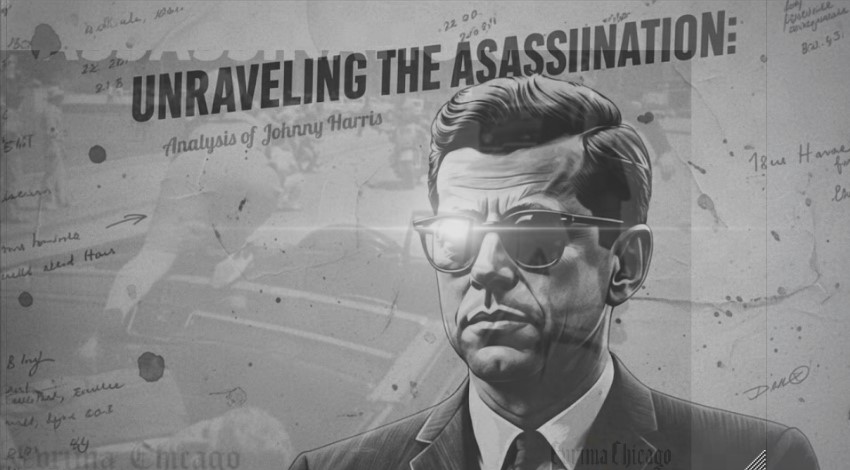In an age where technology is evolving faster than human consciousness, Digital Karma by Himanshu Kalkar emerges as a defining blueprint for navigating the coming shift in human identity. Blending scientific inquiry with ancient yogic insight, the book presents a profound exploration of AI and Spirituality, urging readers to reimagine the self—not as separate from technology but evolving symbiotically with it.
The Central Thesis: Conscious Evolution
Kalkar argues that the future of humanity depends not just on upgrading external systems but initiating a deep Conscious Evolution of inner awareness. He positions Artificial Intelligence (AI) as both a challenge and a catalyst—one that can accelerate or derail our development depending on how consciously we integrate it.
The author doesn't merely speculate. He examines how Artificial General Intelligence (AGI), and eventually Artificial Superintelligence (ASI), could either support a global renaissance of wisdom or amplify existing fractures in society if not governed by a spiritual framework.
Technological and Biological Integration
One of the book’s key discussions involves the rise of Neural Implants, wearable technologies, and brain-computer interfaces. These tools promise revolutionary gains in cognition, memory, and communication. However, Kalkar warns that such developments must be grounded in ethical frameworks.
He extends the analysis into Quantum Computing, highlighting how exponential advances in processing power will push humanity into domains where current logic and models no longer apply. This leads to the broader trend of Bionic Enhancement / Human Augmentation, which includes everything from prosthetic upgrades to genetic modifications—all of which must be guided by higher consciousness.
Bridging Ancient Practices with Modern Tech
A central feature of the book is the synthesis of ancient yogic science with modern tools. Kriya Yoga and Karma Yoga, two core practices from India’s spiritual heritage, are positioned as essential methods for self-mastery and energy regulation in an AI-dominated future.
Kalkar introduces the reader to Inner Awakeningnot as a commercial term but as a framework for mastering the mind and aligning with universal intelligence. This approach is critical as we inch closer to the Technological Singularity, a point where machines surpass human intelligence and redefine our role in the evolutionary chain.
Human-AI Symbiosis and Future Consciousness
With the emergence of Digital Companions, AI agents are no longer tools but entities capable of learning human behavior, emotions, and preferences. As they move toward Machine Consciousness, the author raises philosophical and ethical questions about rights, empathy, and co-existence.
In this context, Mindfulness in the Age of AI is not optional—it’s essential. Kalkar offers practical insights into sustaining mental clarity, emotional balance, and spiritual purpose when external systems become increasingly intelligent and manipulative.
This awareness leads to the rise of the Symbiotic Human a person who harmonizes machine integration with internal mastery. This archetype becomes central to a society striving for a more advanced Collective Consciousness.
Toward a Techno-Spiritual Civilization
Kalkar coins the term Techno-Spiritual Synthesis to describe the needed integration between two traditionally separate worlds: technology and spirituality. Through this fusion, he envisions a rise in Spiritual Intelligence ability to make ethical, empathic, and conscious decisions across both personal and collective domains.
The concept of Energy Alignment plays a vital role here. As technology increasingly influences our behavior, aligning one's energy through breath, attention, and intention becomes not a luxury but a survival strategy in the new paradigm.
Philosophical Implications and the Rise of Transhumanism
The book does not shy away from the controversial implications of Transhumanism. Rather than reject the idea of enhanced humans, Kalkar challenges the motives and awareness behind such advancements. Are we upgrading out of fear and insecurity, or in service of a higher consciousness?
This leads to the vision of the Digitalverse, a future where humans engage with immersive digital realities, not to escape life but to explore deeper layers of mind, karma, and purpose. It's a realm where data, intention, and identity converge.
Awakening Human Consciousness
The final chapters emphasize the necessity of Awakening Human Consciousness before unlocking higher technological thresholds. Without maturity, power corrupts. With maturity, power transforms. The future demands not more innovation but more introspection.
Ethical AI thus becomes not just a technical challenge but a spiritual imperative. Kalkar calls for coders, engineers, and leaders to infuse spiritual ethics into the design and governance of intelligent systems.
Redefining the Human in the Digital Age
Perhaps the most provocative idea in the book is the confrontation with Inner vs. Outer Technology. While the outer world races toward automation, Kalkar urges a balancing act—investing equally in internal technologies like presence, compassion, and attention.
As these dual forces shape society, the question of Human Identity in the Digital Age becomes unavoidable. Are we merely data-driven organisms reacting to stimuli? Or conscious beings capable of wisdom, transcendence, and service?
The Role of Dharma and Karma in Technology
Finally, Dharma and Karma in Technology are reframed not as mythic ideals but as operational principles. Dharma becomes the inner law or purpose governing the ethical use of technology. Karma becomes the energetic consequence of every digital decision, algorithmic bias, and systemic design.
These principles could form the moral compass of a future where AI is not just smart, but wise.
Conclusion
Digital Karma is not a speculative science book nor a mystical treatise. It is a necessary manual for anyone standing at the crossroads of machine evolution and human awakening. With clarity, urgency, and depth, Himanshu Kalkar offers readers a rare synthesis of visionary insight and practical wisdom. The message is clear: evolve consciously, or risk being outpaced by the very tools you’ve created.
Disclaimer – Evrima Chicago, LLC
· This content has been developed, distributed, and/or published by Evrima Chicago, LLC as part of its media and syndication services.
· Evrima Chicago does not author, endorse, or verify the factual accuracy of the views or claims expressed by the individuals, organizations, or third-party entities featured.
· All opinions, statements, or representations are those of the featured party and do not reflect the views of Evrima Chicago, its affiliates, or its editorial board.
· Evrima Chicago acts solely as a media representative and syndication platform, and is not liable for any consequences arising from reliance on the information contained herein.
· Content is provided strictly for informational, cultural, or journalistic purposes, and does not constitute legal, medical, or financial advice.
· Parties interested in verifying claims or seeking further clarity should contact the featured subject directly or refer to cited sources.
· Evrima Chicago reserves the right to edit or format submitted materials for length, clarity, or publication standards, but does not alter the core message provided by the subject.
For media, rights, or syndication inquiries, please contact:




